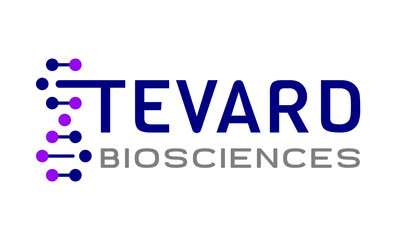Tevard Biosciences, the pioneer of tRNA-based treatments for severe genetic diseases, today announced the appointment of Paul Schimmel, Ph.D., Susan Ackerman, Ph.D., and Nicholas Ingolia, Ph.D., to its scientific advisory board.
|
CAMBRIDGE, Mass., March 9, 2022 /PRNewswire/ -- Tevard Biosciences, the pioneer of tRNA-based treatments for severe genetic diseases, today announced the appointment of Paul Schimmel, Ph.D., Susan Ackerman, Ph.D., and Nicholas Ingolia, Ph.D., to its scientific advisory board. Dr. Schimmel also joins the company's board of directors. "We believe that by thoughtfully exploiting tRNAs, a group of small RNAs essential for the translation of messenger RNAs into proteins, we can create highly effective treatments for a host of genetic diseases," said Tevard co-founder Harvey Lodish, Ph.D., who chairs the company's SAB and sits on its board of directors. "I am therefore thrilled to welcome Dr. Schimmel, Dr. Ackerman, and Dr. Ingolia, some of today's top researchers in tRNA and gene translation, to our SAB." "We're honored that these three scientific luminaries have joined our efforts to create medicines that could change the lives of patients who today have few treatment options," said Tevard Chief Scientific Officer Gopi Shanker, Ph.D. "We're encouraged by our data that our tRNA platforms can modulate mRNA function to restore normal expression of a variety of genes, opening the possibility of cures for severe neurological, cardiovascular and musculoskeletal disorders, among others." Author or coauthor of over 500 scientific research publications and a widely used three-volume textbook on biophysical chemistry, Dr. Schimmel has conducted career-long investigations into aminoacyl tRNA synthetases—a set of key enzymes involved in the fundamental working of tRNAs—and their role in health and disease. In a separate line of research, Dr. Schimmel developed the concept of what are now known as ESTs (expressed sequence tags) and the strategy of shotgun sequencing, developments that were key to the launch of the Human Genome Project. "tRNAs are some of the most ancient—and most fascinating—molecules in biology," said Dr. Schimmel, the Ernest and Jean Hahn Professor of Molecular Medicine and of Chemistry at Scripps Research. "Tevard has a unique opportunity to translate what we're learning in the lab about these old molecules into new medicines for gravely ill patients, and I'm gratified to be a part of that effort." Dr. Schimmel is an elected member of the National Academy of Sciences, the National Academy of Medicine, the National Academy of Inventors, the American Philosophical Society, the American Academy of Arts and Sciences, and the American Association for the Advancement of Science. He holds a portfolio of patents and is a cofounder or founding director of what matured into seven NASDAQ-listed enterprises that have translated academic research into new medicines. These enterprises created FDA-approved medicines. Lives saved by just one of these medicines are estimated as over 800,000. Dr. Ackerman's groundbreaking work using mouse genetics has identified novel genes, pathways, and networks involved in neurodevelopment and age-related death of neurons in the central nervous system. Among other advances, she has uncovered an unexpected role that certain tRNAs can play in epilepsy and other neurological disorders. "Tevard is expanding on our knowledge of tRNA function in mRNA translation to repurpose these adaptor RNAs as therapies for devastating diseases for which therapeutic development has been recalcitrant," said Dr. Ackerman. "I'm delighted to work with Tevard on this exciting new approach." Dr. Ackerman is the Stephen W. Kuffler Chair of Biology and a professor in the Neurobiology Section in the Division of Biological Sciences at the University of California, San Diego; she is also a professor in the department of Cellular and Molecular Medicine and the Vice Dean of Research for the UCSD School of Medicine. Dr Ackerman has been an Investigator of the Howard Hughes Medical Institute since 2005, is a member of the National Academy of Sciences, the National Academy of Medicine, and the American Academy of Arts and Sciences. Dr. Ingolia has developed a number of innovative techniques for studying the mechanisms involved mRNA translation and stability. Ribosome profiling, which he developed as a postdoc at University of California, San Francisco, has become the mainstay of labs conducting research on mRNA translation. (mRNAs and tRNAs work together within ribosomes to translate genes into new proteins.) Dr. Ingolia's lab at the University of California, Berkeley, where he is currently an associate professor of biochemistry, biophysics, and structural biology in the Department of Molecular and Cell Biology, continues to develop novel techniques including CiBER-Seq, which allows researchers to understand which sequences in the genome control the expression of any given gene. "Tevard is developing therapies to address many different genetic diseases at once by working on the basic machinery that decodes genes in the cell. It's a creative and promising approach to get around the need to develop a different treatment for each gene and I'm looking forward to working with them," said Dr. Ingolia. Dr. Ingolia is a past recipient of the NIH Director's New Innovator Award and the Damon Runyon-Rachleff Innovation Award, and was a 2011 Searle Scholar. "We are making a first step into the vast world of tRNA therapeutics, with people who have the passion and the will to make it happen," said Dr. Schimmel. About Tevard Biosciences CONTACT:
SOURCE Tevard Biosciences |





